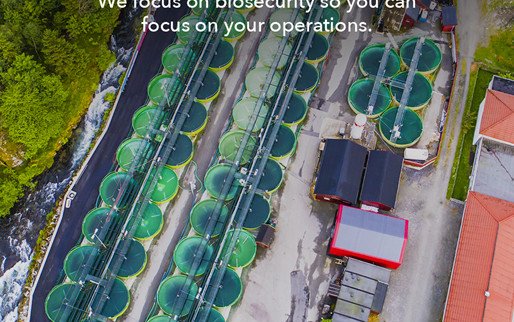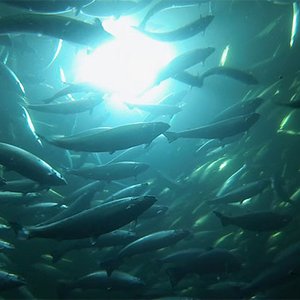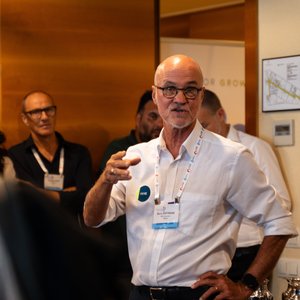Based in Norway, a team of Xylem experts formed the Aquaculture Center of Excellence (CoE) to support European aquaculture customers with the same competence that has been used to innovate and develop the Norwegian market. The virtual CoE brings together a focused team of experts with decades of experience in delivering complex aquaculture projects. The ambition of the CoE is to take the local experience to the next level of supporting global customers in solving complex water challenges.
Expertise available through the CoE covers core areas within biosecurity and farm welfare, such as disinfection, water intake, recirculation, wastewater treatment, heat exchange, filtration and oxygenation, as well as silage. These are all key aspects to maintaining a healthy and sustainable yield, whether it is in a land-based RAS or cage farm.
Arild Heimlid, leader of the Center of Excellence Aquaculture at Xylem, explained that “our extensive expertise built from generations of experience here in Norway, will now be available to support customers across borders. We see this as an excellent opportunity to deliver innovative solutions with a focus on sustainability and fish welfare.”
“Our CoE team is based throughout Norway, so we have been able to be close and hands-on not only with our customers but with other suppliers, partners and scientists to learn from experiences in various types of installations and are involved in developing the industry. Now we have the opportunity to channel our knowledge to our colleagues in other countries to assist our customers on a global scale,” stated Asbjørn Husby, business development manager.
Not only does the CoE team help customers with their daily challenges but they are also involved in research and development projects with universities, industry partners and authorities to investigate and escalate issues within biosecurity. Xylem’s CoE expert in aquaculture engineering, Asbjørn Husby, recently participated in an international study to benefit livelihood in the industry. The study is about the inactivation of Piscine orthoreovirus, a well-known virus that infects various salmonid fish species. Check out the paper here.













